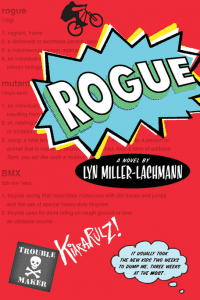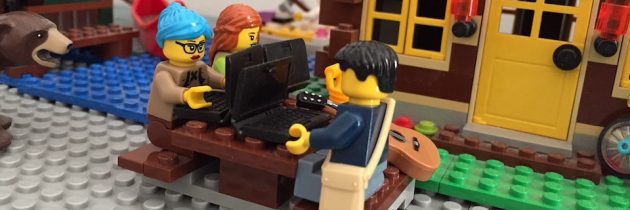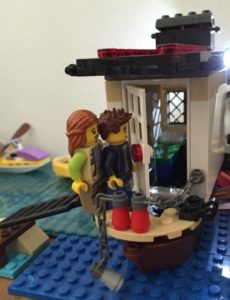Agent Revisions, Editor Revisions
As I mentioned in my last post, I’ve been in the revision cave for the past month or so. Typically, the first round of revisions for a published book are what’s called a developmental edit. It’s a big-picture edit that can involve deepening characters and their motivations, cutting characters, changing plot points, cutting or adding scenes, tightening the beginning or starting in a new place, changing the ending and in rare cases, shifting the entire point of view. For example, in the first round edits of Rogue, I was asked to “unkill” a major character. I didn’t want to do it, and it took several tries for me to pull it off, exasperating my editor in the process. In Surviving Santiago, I turned the first two chapters into one and later on added a chapter at a roadblock in Valparaíso that I alluded to in the original manuscript but my editor felt deserved an entire scene.
 One of my VCFA classmates told me, however, that her developmental edit involved rewriting the entire second half of the novel. And that begged the question: How did the book sell in the first place if it needed so much work? After reading it, I understood. The writing is amazing, and the main character’s voice so unique and relatable. It was a book its readers needed.
One of my VCFA classmates told me, however, that her developmental edit involved rewriting the entire second half of the novel. And that begged the question: How did the book sell in the first place if it needed so much work? After reading it, I understood. The writing is amazing, and the main character’s voice so unique and relatable. It was a book its readers needed.
The question nagged at me, especially since with Rogue, I’d already done a major revision with my agent — one that involved unkilling another character. At one of the VCFA Alumnx Mini-Residencies, I decided to ask an agent my question. I raised my hand and said, “You talk about the manuscript needing to be close to perfect when you submit it to editors. What happens if an editor takes it but then asks your writer to completely rewrite the book? Do you feel you fell down on your job?”
I suppose no agent feels they fell down on their job if they sold a client’s manuscript to a publisher. And I appreciate the agent’s response for clarifying: “The agent is like a real estate agent who prepares a house for showing. They take care of painting the walls and staging the rooms. Once the house is sold, the buyer has to deal with the plumbing, the electrical — all the things that you don’t see at the showing.”
Having bought two places that looked so inviting that I (and other family members) fell in love with despite knowing the plumbing and electrical needed to be ripped out and replaced, I understood much of the difference between the revisions an agent requests and ones an editor requests.
If you’re at the stage of looking for an agent, or an agent gives you an R&R (revise and resubmit), what shows well in a manuscript? What will make an editor think, “This manuscript has good bones even if it needs work?” What is the equivalent of a fresh coat of paint, a well-tended garden, effective staging of the rooms?
Based on my own experience and others, I’ll advance a couple of suggestions. The paint and garden are the equivalent of voice — language and expression that’s a delight to read and appropriate for the age group, genre, and story. I hear all the time that agents and editors are looking for “voice,” and it’s the hardest aspect of writing to describe and quantify. “You know it when you read it,” they say. And not everyone has the same taste, as any writer who’s gotten rejections that say, “love the voice, couldn’t connect to the characters” along with “love the characters but the voice didn’t stand out.” Similarly, the majestic 80-year old silver maple in the front yard may attract one home buyer but the next one only thinks of the leaves that don’t turn pretty colors in the fall but will have to be raked anyway.
One of the first things real estate agents tell sellers to do is declutter. Take down the family photos and knickknacks and put excess furniture in storage. Similarly, if you have an editorial agent, they may tell you to declutter. The agent who handled Rogue told me to unkill one of two doomed characters before the editor had me unkill the other. Characters dying in the course of that novel cluttered it. With Torch, my agent had me remove one entire day from a road trip, bypassing a key stop in the original manuscript. I didn’t have additional decluttering to do with my editor (most of the revisions had to do with deepening the characters’ relationships), but I’d already deleted a winery tour before my agent saw the manuscript.
Authors: What are some of the ways your editor had you revise your manuscript after you’d already worked on it with your agent?







